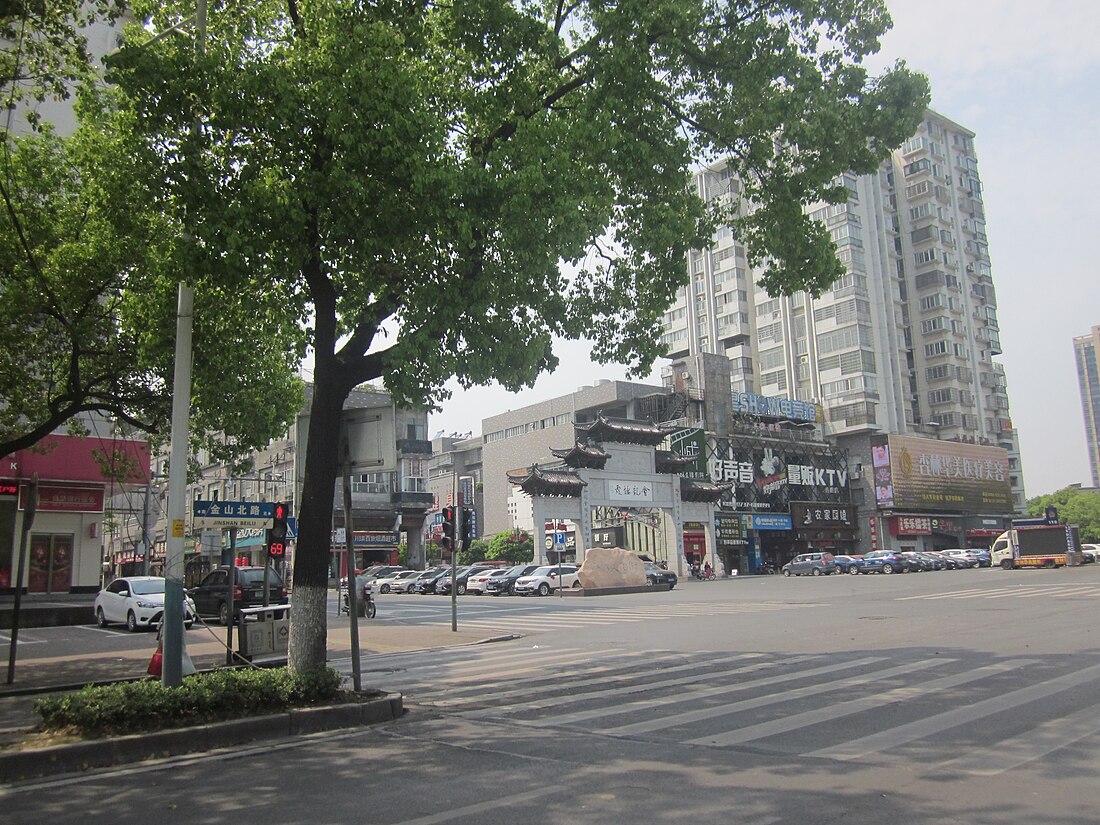Top Qs
Timeline
Chat
Perspective
Yiyang
Prefecture-level city in Hunan, People's Republic of China From Wikipedia, the free encyclopedia
Remove ads
Yiyang (simplified Chinese: 益阳; traditional Chinese: 益陽; pinyin: Yìyáng) is a prefecture-level city on the Zi River in Hunan province, China, straddling Lake Dongting and bordering Hubei to the north. According to the 2010 Census, Yiyang has a population of 4,313,084 inhabitants residing in an area of 12,144 km2 (4,689 sq mi). The previous census was in 2000 when it was recorded there were 4,309,143 inhabitants.[3]
Remove ads
History
Yiyang county was founded in 221 BC after Qin conquered Chu state. It is designated Yiyang as the county seat was situated at the north bank of the Yi River (modern Zi River). Then the present-day jurisdiction mostly became a part of the Principality of Changsha commandery during the Western Han.[4]
Subdivisions

Yiyang administers two districts, one county-level city, and three counties. The information here presented uses the metric system and data from 2010 national census.
Remove ads
Climate
Agriculture
Yiyang has many hilly farmlands in its vicinity. The primary crop around Yiyang is rice, with tea, and bamboo is also grown.
Government
The current CPC Party Secretary of Yiyang is Qu Hai and the current mayor is Zhang Zhiheng.
Culture, people and language
Huaguxi, the local Hunanese opera is very popular in Yiyang. The cuisine of Yiyang (a species of Xiang cuisine) is very famous for its spicy food made from pure chili peppers.
Yiyang has many famous people in the modern time of China. Ho Feng-Shan is very famous in the history of Chinese foreign affairs since he had saved many Jewish families in Europe and China when he worked as a diplomat for China during World War II. Libo Zhou is a well-known writer in China, who was born in Yiyang.
The language in Yiyang is "Yiyong-Wa" (Yiyang Dialect), which belongs to New Xiang dialect of the Chinese language. This dialect is very prevalent in all of Yiyang. But the western area of Anhua County of Yiyang has a slightly different accent, which is close to the Old Xiang accent of the Loudi District. Yiyang Dialect retains many ancient words and pronunciations and is influenced surprisingly little by Mandarin Chinese. Consequently, the Yiyang Dialect is very hard to understand for outsiders, although its speakers can communicate well with the speakers of other New Xiang dialects.
Remove ads
Religions
Historically, Buddhism and Taoism both played very important roles in the life of Yiyang people. In modern times, both of these religions experienced a decline, as in many other places in China. Nowadays, however, Buddhism and Christianity have many adherents in Yiyang, respectively 340,500 and 238,100 registered members.
Colleges and universities
- Hunan City University (湖南城市学院)
International relations
Twin towns — Sister cities
Yiyang is twinned with:
 Stara Zagora, Bulgaria (1994.12.04)
Stara Zagora, Bulgaria (1994.12.04) Namhae County, South Korea (2006)
Namhae County, South Korea (2006) Petah Tikva, Israel (2011)
Petah Tikva, Israel (2011) Rajshahi, Bangladesh (2018)
Rajshahi, Bangladesh (2018) Guarulhos, Brazil (2019)
Guarulhos, Brazil (2019)
Tourist attractions
White Deer Temple is a popular attraction.
The Former Residence of Zhou Libo is a well known tourist spot.
References
External links
Wikiwand - on
Seamless Wikipedia browsing. On steroids.
Remove ads




